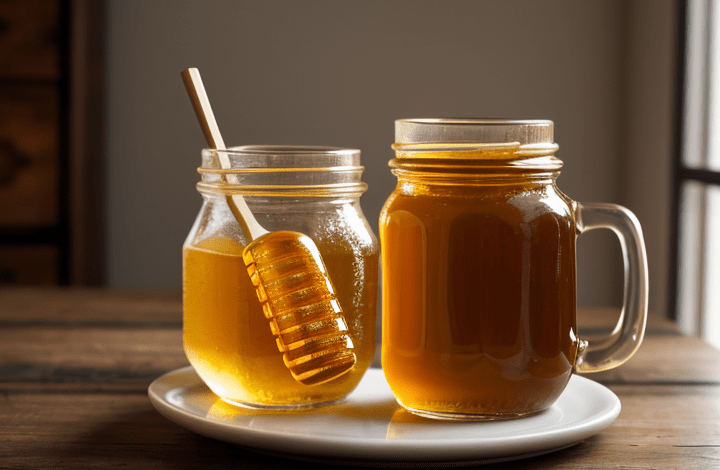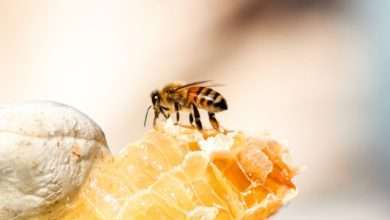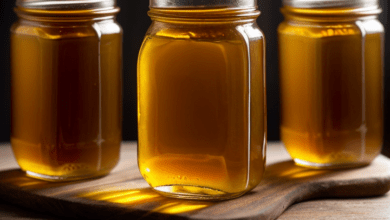The Essential Guide to Honey Powder: Exploring Uses, Benefits, and Production Techniques

Overview of Honey Powder
Honey powder, a versatile sweetener produced from natural honey, has gained significant popularity in recent years. This fine, powdered substance provides the taste and benefits of traditional honey, but with enhanced convenience and extended shelf life. It is made by removing the moisture content from liquid honey, leaving behind a dry, powdered form that can be used in various culinary and cosmetic applications.
History and Origins of Honey Powder
The origins of honey powder can be traced back to ancient civilizations. Honey itself has been used for thousands of years as a natural sweetener, medicinal remedy, and beauty product. However, it was not until modern production techniques were developed that honey powder became a convenient alternative.
The process of creating honey powder involves spray-drying or freeze-drying liquid honey. This technique allows for the removal of moisture while preserving the natural flavor, aroma, and nutritional qualities of honey. The resulting powder can be stored easily without the risk of spoilage, making it a practical choice for both commercial and domestic use.
Growing Popularity and Uses of Honey Powder
In recent years, honey powder has witnessed a significant surge in popularity across the globe. Its versatility and convenience have made it a preferred choice for chefs, bakers, consumers, and even skincare enthusiasts. The dehydrated powder offers a wide range of uses and benefits:
Culinary Applications:
- Sweetening Beverages: Honey powder dissolves easily in hot or cold liquids, making it a convenient choice for sweetening beverages such as tea, coffee, smoothies, and cocktails.
- Baking: Replace traditional honey with honey powder in baked goods like cakes, cookies, and bread. It provides the same sweetness and flavor, while also improving the texture and shelf life of the products.
- Sauces and Dressings: Honey powder can be used as a natural sweetener in sauces, salad dressings, marinades, and glazes, adding a delightful touch to various savory dishes.
Health and Wellness:

- Nutritional Benefits: Honey powder retains the natural nutritional properties of honey, including antioxidants, vitamins, and minerals. It can be incorporated into smoothies, breakfast cereals, granola bars, and nutritional supplements to enhance their health benefits.
- Long Shelf Life: Unlike liquid honey, honey powder can be stored for an extended period without spoilage. This makes it a reliable option for stocking up and incorporating honey’s nutritional advantages into one’s diet.
Cosmetic and Skincare:
- Face Masks and Scrubs: Honey powder can be mixed with other natural ingredients like clay, yogurt, or essential oils to create nourishing face masks and exfoliating scrubs. It helps to moisturize, rejuvenate, and cleanse the skin, leaving it soft and supple.
- Bath and Body Products: Incorporating honey powder into bath salts, soaps, lotions, and lip balms can provide soothing and moisturizing benefits, making it an ideal ingredient for skincare products.
The Benefits of Honey Powder
Here, we will explore the many advantages of incorporating honey powder into your daily routine, from its nutritional benefits to its long shelf life. Let’s delve into the remarkable advantages of this versatile and practical powdered form of honey!
Nutritional Benefits:
- Packed with Essential Nutrients: Honey powder is a concentrated source of various vitamins and minerals, including vitamin C, calcium, iron, and potassium. These nutrients are vital for maintaining overall well-being and supporting a healthy immune system.
- Natural Energy Booster: Due to its high carbohydrate content, honey powder provides a quick and sustainable energy boost. Whether you are an athlete, a busy professional, or simply in need of an energy pick-me-up, honey powder offers a natural and nutritious solution.
Health Benefits:
- Soothes Sore Throats and Coughs: Similar to liquid honey, honey powder possesses soothing properties that can alleviate discomfort associated with sore throats and coughs. It forms a protective layer, reducing irritation and promoting healing.
- Supports Digestive Health: The enzymes present in honey powder aid in digestion, promoting a healthy gut. Consuming honey powder regularly may relieve digestive issues such as bloating, indigestion, and constipation.
- Natural Antioxidant Properties: Honey powder contains antioxidants that help combat free radicals, consequently reducing the risk of chronic diseases, including cardiovascular problems and certain types of cancer.
Cosmetic and Skincare Benefits:
- Hydrates and Revitalizes the Skin: When used as an ingredient in skincare products, honey powder acts as a natural moisturizer, promoting hydration and rejuvenating the skin. It helps retain moisture, leaving your skin supple, soft, and glowing.
- Anti-Aging Properties: The antioxidants found in honey powder can help combat the signs of aging, such as wrinkles and fine lines. Regular use of honey powder-based skincare products can contribute to a more youthful appearance.
Long Shelf Life:
One of the greatest advantages of honey powder is its impressive shelf life compared to liquid honey. Honey powder can be stored for extended periods without spoiling, making it an ideal choice for those who wish to enjoy the benefits of honey without worrying about expiration dates.
Easy to Use and Convenient:
Honey powder’s user-friendly nature makes it highly convenient in various situations. Its powdered form allows for easy incorporation into a wide range of recipes, whether for beverages, baked goods, or savory dishes. The lightweight and compact packaging make it travel-friendly, allowing you to enjoy the benefits of honey wherever you go.
Production Techniques of Honey Powder
Here are some of the various production techniques of honey powder, highlighting the advantages and processes of each method.
A. Spray Drying Process
The spray drying process is one of the most common methods used in the production of honey powder. This technique involves transforming liquid honey into a powdered form through rapid drying. Here’s how it works:
1. Atomization: Liquid honey is first atomized into small droplets using high-pressure nozzles or rotating wheels. This creates a larger surface area for faster evaporation.
2. Drying: The honey droplets are then exposed to hot air in a drying chamber. As the hot air comes into contact with the droplets, the water content rapidly evaporates, leaving behind dried honey particles.
3. Collection: The dried honey particles are collected using cyclones or bag filters, separating them from the hot air.
The spray drying process offers several advantages, including efficient moisture removal, a high production rate, and the preservation of honey’s nutritional properties.
B. Drum Drying Method
Another popular production technique for honey powder is the drum drying method, which provides a unique texture and flavor. Here’s an overview of the process:
1. Heating: Liquid honey is heated in a drum dryer, which consists of a hollow drum fitted with steam-heated tubes. The heat causes the water content in the honey to evaporate.
2. Spreading: As the honey thickens due to the evaporation of water, it forms a sticky layer on the drum’s surface. This layer is spread evenly across the drum’s circumference using a roller.
3. Drying: The drum rotates while hot air is blown over the honey layer. The heat further evaporates the remaining moisture, leaving a thin film of dried honey on the drum’s surface.
4. Scraping: A blade or scraper collects the dried honey film from the drum’s surface, resulting in flaky honey particles.
The drum drying method offers the advantage of creating honey powder with a unique texture and enhanced caramelized flavor.
C. Freeze-Drying Process
Freeze-drying, also known as lyophilization, is a delicate and precise technique used to produce high-quality honey powder. The process involves the following steps:
1. Freezing: Liquid honey is first frozen at extremely low temperatures, typically below -40°C (-40°F). This frozen honey forms ice crystals.
2. Sublimation: The frozen honey is then placed in a vacuum chamber, where the ice crystals undergo sublimation. Sublimation is the process by which ice directly converts into water vapor without going through the liquid phase.
3. Drying: The water vapor is removed from the vacuum chamber by condensing it onto a cold surface, leaving behind freeze-dried honey particles.
The freeze-drying process is favored for its ability to retain the natural flavor, color, and aroma of honey, resulting in a high-quality honey powder.
D. Dehydration Techniques
Apart from the aforementioned techniques, honey powder can also be produced using dehydration methods such as air drying, solar drying, or microwave drying. However, these techniques are less commonly employed on an industrial scale due to slower drying times and potential degradation of honey’s natural properties.
E. Quality Control and Packaging
Regardless of the production technique employed, maintaining stringent quality control measures is crucial to ensuring the production of premium honey powder. This includes monitoring parameters such as moisture content, particle size, and flavor consistency. Packaging honey powder in moisture-resistant containers with proper labeling helps preserve its quality and inform consumers about its attributes.
Selling Honey Powder
Now, we will discuss selling this unique and versatile product to maximize your profits.
Marketing Strategies for Honey Powder:
1. Educate Consumers:
- Inform potential customers about the benefits and versatility of honey powder through a combination of online content, social media posts, and in-store displays.
- Highlight recipes and cooking tips that showcase the various applications of honey powder, encouraging customers to incorporate it into their culinary endeavors.
- Offer variations, such as Honey Garlic Powder, Bramble Berry Honey Powder (for making soap), Honey Glaze Powder and Honey Chili Powder.
2. Packaging and Labeling:
- Design appealing and informative packaging to attract customers’ attention.
- Clearly label the packaging with the product name, ingredient list, and any additional certifications, ensuring transparency and building trust.
- Consider offering different package sizes to suit different customer needs or even sampler packs to allow customers to experiment with different flavors.
3. Collaborate with Retailers and Food Manufacturers:
- Approach local retailers, specialty stores, and food manufacturers who may be interested in using honey powder in their products.
- Offer samples and conduct tastings to familiarize potential business partners with the unique qualities and flavors of honey powder.
- Explore collaboration opportunities, such as co-branding or private labeling, to expand your reach and boost sales.
Conclusion
Honey powder offers a convenient and versatile alternative to liquid honey, with a long shelf life and various culinary and cosmetic uses.
This article has provided an overview of honey powder, delved into its history and production techniques, and explored its growing popularity in various industries.
Selling honey powder as a beekeeper can provide a lucrative opportunity to diversify your product range and tap into a wider market. The extended shelf life, convenience, and versatility of honey powder makes it an appealing choice for consumers seeking the natural sweetness of honey with added practicality.
By employing effective marketing strategies and leveraging collaboration opportunities, you can successfully introduce honey powder to your customers and witness the growth of your beekeeping business.

FAQ’s:
What are the nutritional benefits of honey powder?
- Honey powder contains essential vitamins, minerals, and antioxidants, offering a natural and nutritious alternative to refined sugar.
What production techniques are used to create honey powder?
- Common production techniques include spray drying, drum drying, and freeze-drying, each with its own set of advantages and considerations in preserving the natural properties of honey.
What are the benefits of using honey powder in skincare and beauty products?
- Honey powder offers natural moisturizing and soothing properties, making it a popular ingredient in beauty products such as face masks and scrubs.
What are the benefits of using honey powder?
- Honey powder offers several advantages, including extended shelf life, ease of storage, and convenience in various applications. It also allows for precise measurement and eliminates the stickiness associated with liquid honey. Moreover, it can be used as a natural sweetener and flavoring agent in a wide range of culinary creations.
Is honey powder a suitable option for vegan diets?
- Honey powder, like regular honey, is derived from bees and is not considered vegan. However, some vegans may choose to incorporate honey powder into their diet based on individual preferences. It is always recommended to consult with a healthcare professional or dietician for guidance on specific dietary needs.
Does honey powder retain the nutritional benefits of real honey?
- While honey powder does retain some nutritional qualities of liquid honey, the dehydration process may cause minimal nutrient loss. However, honey powder still contains naturally occurring sugars, antioxidants, anti-inflammatory properties, and trace amounts of minerals found in real honey.
How should honey powder be stored?
- It is best to store honey powder in an airtight container in a cool, dry place, away from direct sunlight. This will help preserve its flavor and prevent clumping. When stored properly, honey powder can have an extended shelf life of up to one year.
Can honey powder be used as a natural remedy?
- Honey powder has various potential health benefits and is often used to soothe sore throats, relieve coughs, and support overall wellness. However, it is important to note that specific remedies may require other ingredients, and consulting a healthcare professional is advisable for proper guidance.
Is honey powder suitable for individuals with allergies?
- Individuals with allergies to bees or bee products should exercise caution when using honey powder or consult an allergist. While honey powder undergoes a dehydration process that may reduce allergenic compounds, it is possible that traces of allergens could still be present.




